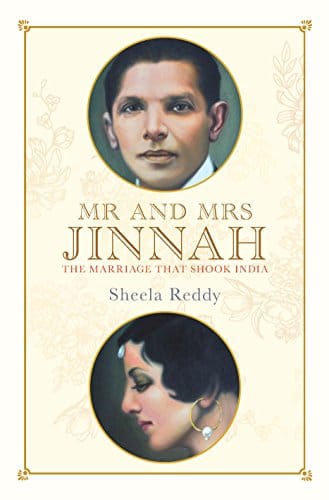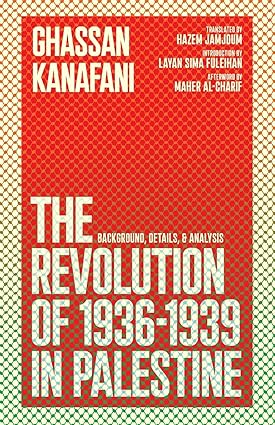WELCOME TO MIDLAND BOOK SHOP!
SHOP FOR
- Contemporary Fiction
- Contemporary Fiction
- Children
- Children
- Comics & Graphic Novels
- Comics & Graphic Novels
- Non-Fiction
- Non-Fiction
- Fiction
- Fiction
Shop No.20, Aurobindo Palace Market, Hauz Khas, Near Church +91 9818282497 | 011 26867121 110016 New Delhi IN
Midland The Book Shop ™
Shop No.20, Aurobindo Palace Market, Hauz Khas, Near Church +91 9818282497 | 011 26867121 New Delhi, IN
+919871604786 https://www.midlandbookshop.com/s/607fe93d7eafcac1f2c73ea4/676a925de6f825019b0470ed/instagram-post-3--480x480.jpeg" [email protected]9780670086436 60ad0317f4c43e121715a657 Mr and Mrs Jinnah https://www.midlandbookshop.com/s/607fe93d7eafcac1f2c73ea4/60ad0319f4c43e121715a6e7/9780670086436-us.jpg Mohammad Ali Jinnah was forty years old, a successful barrister and a rising star in the nationalist movement when he fell in love with pretty, vivacious Ruttie Petit, the daughter of his good friend, the fabulously rich baronet, Sir Dinshaw Petit, a prominent Parsi mill owner. But Ruttie was just sixteen and her outraged father forbade the match. But when Ruttie turned eighteen, they married, and Bombay society, its riches and sophistication notwithstanding, was scandalized. Everyone sided with the Petits, and Ruttie and Jinnah were ostracized. It was an unlikely union that few thought would last. But Jinnah, in his undemonstrative, reserved way was unmistakably devoted to his beautiful, wayward child-bride—as proud of her fashionable dressing as he was of her intelligence, her wide reading, and her fierce commitment to the nationalist struggle. Ruttie, on her part, worshipped him, and could tease and cajole the famously unbending Jinnah, whom so many people found intimidating and distant. But as the tumultuous political events increasingly absorbed him, Ruttie felt isolated and alone, cut off from her family, friends and community. The unremitting effort of submitting her personality to Jinnah's, his frequent coldness, his preoccupation with politics and the law, took its toll. Ruttie died at twenty-nine, leaving her daughter, Dina, and her inconsolable husband, who never married again. Sheela Reddy, well-known journalist and former books editor of Outlook magazine, uses never-before-seen personal letters of Ruttie and her close friends as well as accounts left by contemporaries and friends to portray this marriage that convulsed Indian society, with a sympathetic, discerning eye. A product of intensive and meticulous research in Delhi, Bombay and Karachi, and based on first-person accounts and sources, Reddy brings the solitary, misunderstood Jinnah and the lonely, wistful Ruttie to life. A must-read for all those interested in politics, history, and the power of an unforgettable love story. 9780670086436
out of stock INR 559
1 1
Email ID already exists!
Your Current password is incorrect
Password Updated Successfully
Thanks for your Feedback
- Home
- Non-Fiction
- Mr and Mrs Jinnah
Mr and Mrs Jinnah
ISBN: 9780670086436
₹559
₹699 (20% OFF)SIZE GUIDE
Back In Stock Shortly
Sold By: Hauz Khas - Aurobindo Market
Details
- ISBN: 9780670086436
- Author: Sheela Reddy
- Publisher: Penguin
- Pages: 440
- Format: Hardback
Book Description
Mohammad Ali Jinnah was forty years old, a successful barrister and a rising star in the nationalist movement when he fell in love with pretty, vivacious Ruttie Petit, the daughter of his good friend, the fabulously rich baronet, Sir Dinshaw Petit, a prominent Parsi mill owner. But Ruttie was just sixteen and her outraged father forbade the match. But when Ruttie turned eighteen, they married, and Bombay society, its riches and sophistication notwithstanding, was scandalized. Everyone sided with the Petits, and Ruttie and Jinnah were ostracized. It was an unlikely union that few thought would last. But Jinnah, in his undemonstrative, reserved way was unmistakably devoted to his beautiful, wayward child-bride—as proud of her fashionable dressing as he was of her intelligence, her wide reading, and her fierce commitment to the nationalist struggle. Ruttie, on her part, worshipped him, and could tease and cajole the famously unbending Jinnah, whom so many people found intimidating and distant. But as the tumultuous political events increasingly absorbed him, Ruttie felt isolated and alone, cut off from her family, friends and community. The unremitting effort of submitting her personality to Jinnah's, his frequent coldness, his preoccupation with politics and the law, took its toll. Ruttie died at twenty-nine, leaving her daughter, Dina, and her inconsolable husband, who never married again. Sheela Reddy, well-known journalist and former books editor of Outlook magazine, uses never-before-seen personal letters of Ruttie and her close friends as well as accounts left by contemporaries and friends to portray this marriage that convulsed Indian society, with a sympathetic, discerning eye. A product of intensive and meticulous research in Delhi, Bombay and Karachi, and based on first-person accounts and sources, Reddy brings the solitary, misunderstood Jinnah and the lonely, wistful Ruttie to life. A must-read for all those interested in politics, history, and the power of an unforgettable love story.
User reviews
NEWSLETTER
Subscribe to get Email Updates!
Thanks for subscribing.
Your response has been recorded.

India's Iconic & Independent Book Store offering a vast selection of books across a variety of genres Since 1978.
"We Believe In The Power of Books" Our mission is to make books accessible to everyone, and to cultivate a culture of reading and learning. We strive to provide a wide range of books, from classic literature, sci-fi and fantasy, to graphic novels, biographies and self-help books, so that everyone can find something to read.
Whether you’re looking for your next great read, a gift for someone special, or just browsing, Midland is here to make your book-buying experience easy and enjoyable.
We are shipping pan India and across the world.
For Bulk Order / Corporate Gifting
 +91 9818282497 |
+91 9818282497 |  [email protected]
[email protected]
Click To Know More
INFORMATION
ACCOUNT
QUICK LINKS
ADDRESS
Midland Book Shop - Hauz Khas
Shop No.20, Aurobindo Palace Market, Near Church, New Delhi
Shop No.20, Aurobindo Palace Market, Near Church, New Delhi














